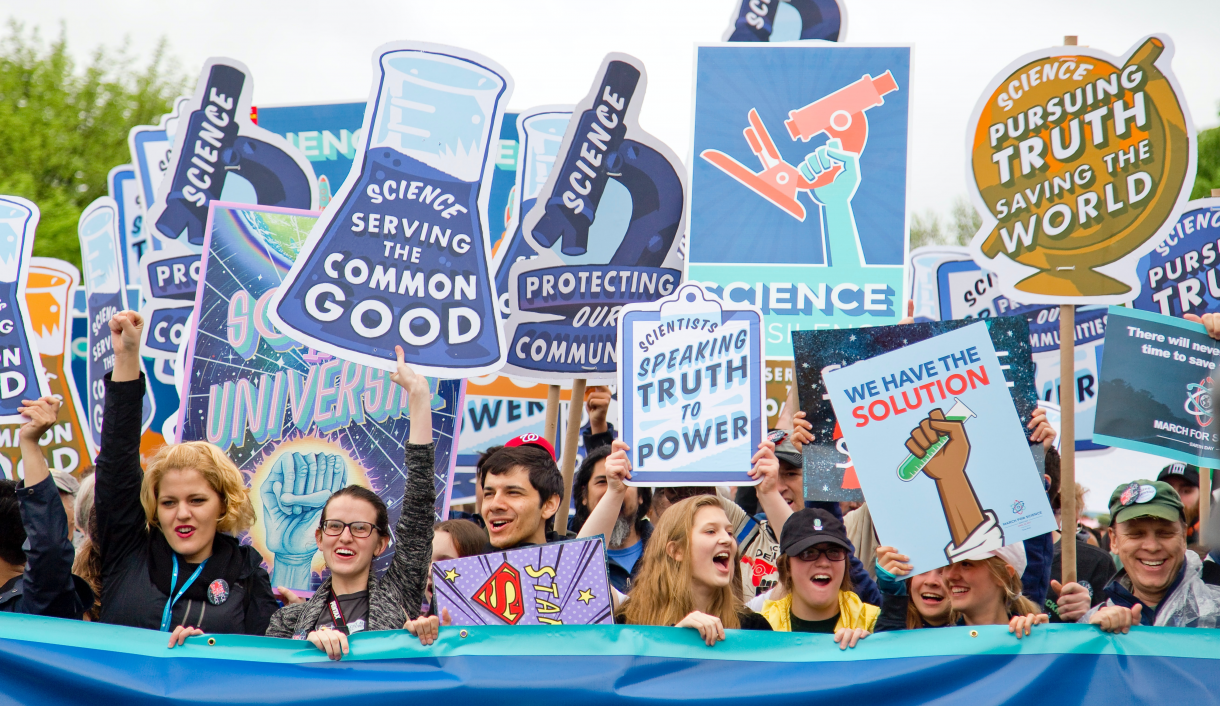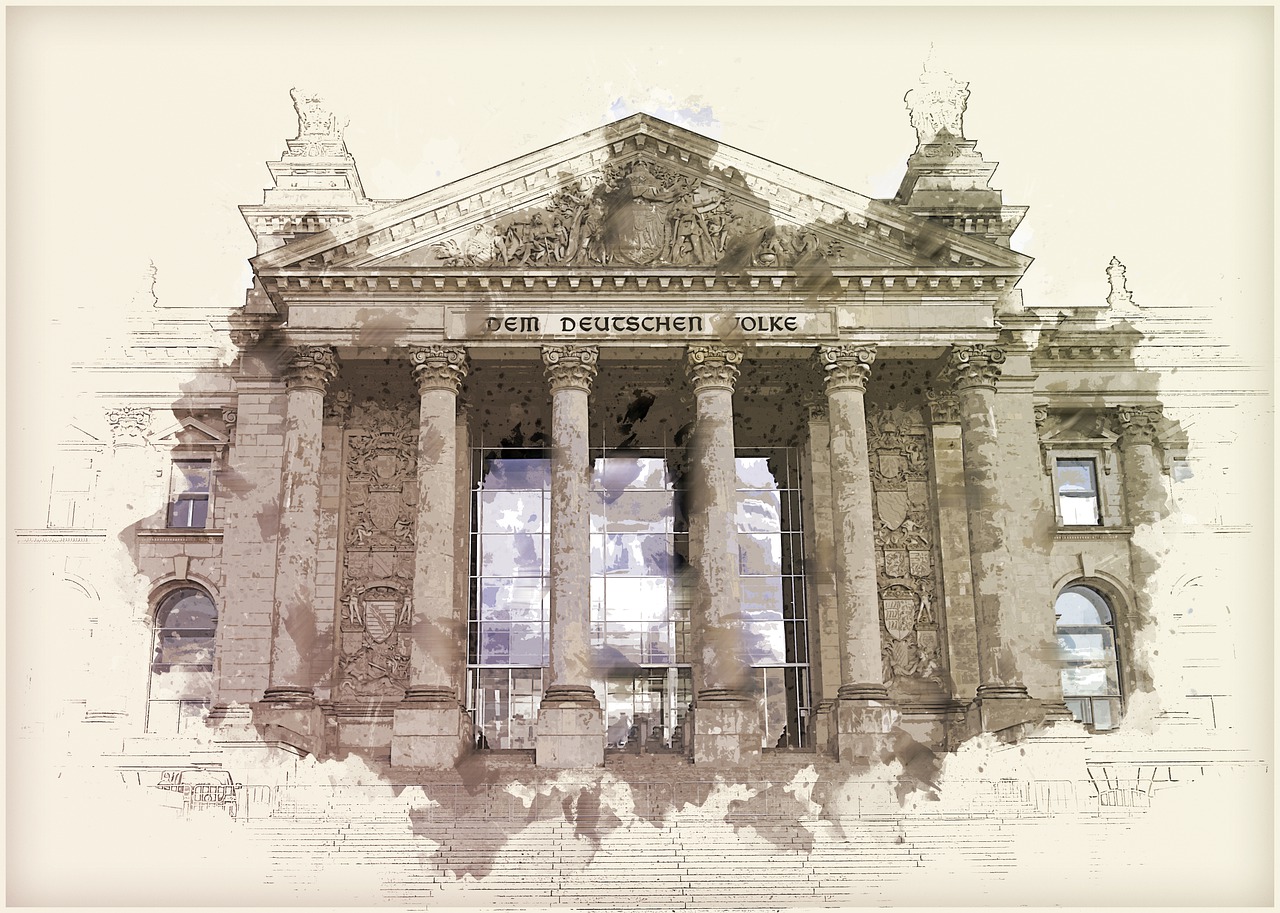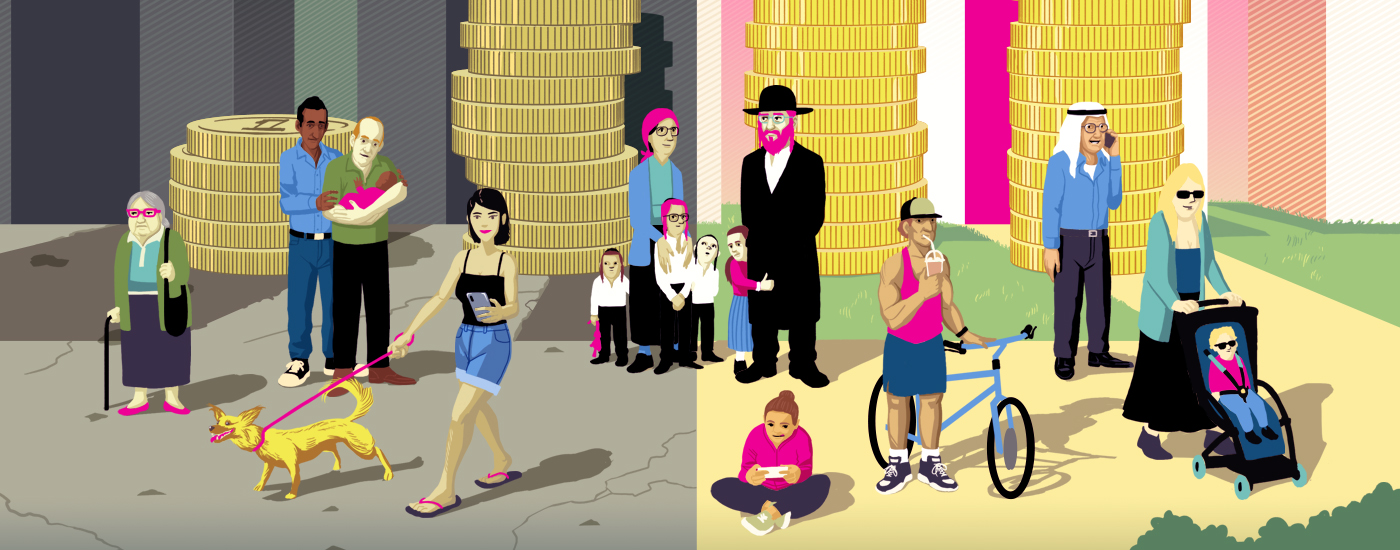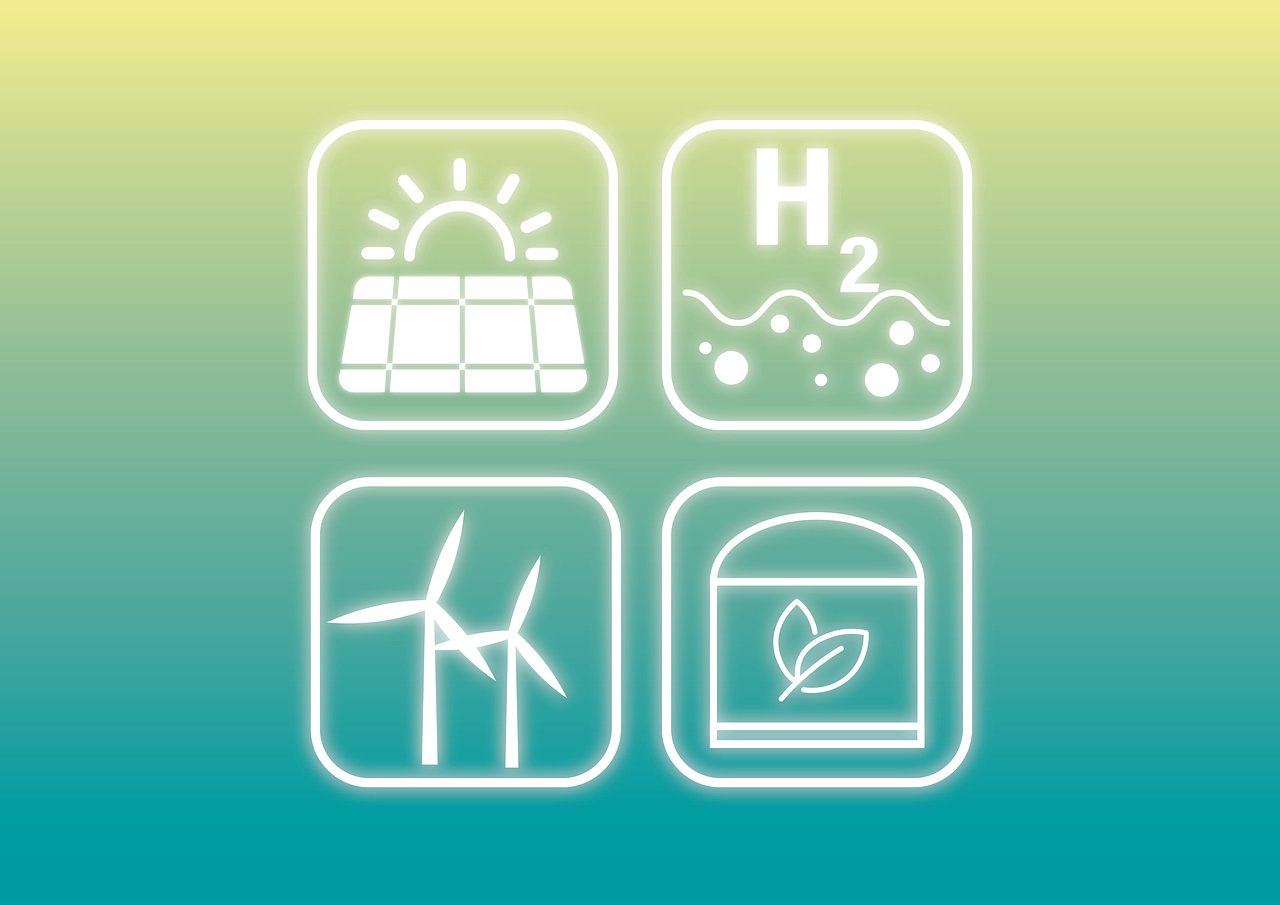"We should focus on reaching the ones who are most vulnerable to disinformation"

Share this Post
Disinfo Talks is an interview series with experts from around the world, who tackle the challenge of disinformation through different prisms. Our talks showcase different perspectives on the various aspects of disinformation and the approaches to counter it. In this installment we talk with Rebecca Winkels, Director of Communications and Strategy at Wissenschaft im Dialog (Science in Dialog).
Rebecca, can you tell us a bit about yourself, about your work and how you became involved with the fight against disinformation?
I am the Director of Communications and Strategy at Wissenschaft und Dialog (Science and Dialogue), which is a German organization for science communication. I’m a trained biologist and science journalist, but I have been working in science communication for the past 10 years. During the Corona pandemic, but also before, one of our major foci was to tackle mis- and disinformation and fake news through science communication. It’s been an area I’ve been interested in for many years with regard to different topics.
How big is the problem of disinformation in general, and specifically in Germany? How worried should we be?
We shouldn’t panic yet, because levels of trust in science and research are very high, and that’s a good sign. At the same time, we are seeing a lot of worrisome developments. We should be tackling the issue now, while we can still get a grip on it. People who voiced conspiracy theories and spread fake news or disinformation have become more prevalent and more prominent in our public debate and their movement is growing. That’s the thing we need to worry about: Conspiracy myths spreading, proliferating with greater speed, and being a given an undue level of attention.
Is this unique to Germany? And is it limited to the pandemic period, or is it something that was happening before?
It’s happening almost everywhere, but I do not think that it is entirely new. It’s the attention we pay to the problem that has increased during COVID. The problem itself might have increased a bit as well, because the entire world is focused on a particular issue. Disinformation and conspiracy myths have been around for a long time. What has changed has much more to do with general developments in flow, management of information sources and their uptake into society. We see more polarized and heated debates highlighted by social media platforms, but I don’t believe in the digitalization or social media being inherently evil. Rather, the combination of many factors is what makes disinformation so dominant now.
The German public is known to exhibit high levels of trust in the country’s traditional media. Has this changed during the pandemic?
Yes, and no. Compared to a lot of other countries, we’re quite well off. The share of the population that trusts in science and research is about the same all over Europe. However, we are seeing a vocal group of people who oppose government measures against the Corona virus. That is definitely something to worry about; it indicates that we need to act now. We should capitalize on the stability that we have at the moment to address the issue of disinformation now, instead of just leaning back calmly. It’s an important issue to take seriously before things deteriorate.
What would you say is the biggest challenge at the moment when it comes to science communication in Germany?
The biggest challenge is making inroads with the “unreached” target groups. In a way, we are good at reaching people who appreciate and take an interest in science. We have an educational system that offers basic science education, but we as a society need to make more of an effort to reach those who don’t come into contact with science in their daily lives. We need to ensure that there are opportunities to get in touch with science (i.e. good coverage of science in the press) and have meaningful discussions with scientists at levels of society; especially for those that are not naturally drawn to science, and that are therefore more vulnerable to conspiracy myths, fake news and disinformation. We need to take that target group more seriously than we are at present.
Who are these people who are detached from science? Where are they getting their information from?
We have some data on this issue. About 15% of the German population in some way believes in conspiracy myths. That’s quite a lot. They are more likely to be older, over 45. We know that people who live in cities are less likely to believe in conspiracy myths than people in the countryside. People who earn less are more likely to buy into disinformation, as are those lacking a high education. There is also a difference between East and West Germany, where people in East Germany are more likely to believe in conspiracy myths, especially in those federal states that lean to the far left or to the far right. In general, people who believe in conspiracy theories are more likely to be center-right or right-wing.
If a person believes in conspiracy theories, it is usually something that runs deep. How do you address it?
Because it runs deep, you have to take a multi-level approach, for which we argue in our paper Battling Misinformation with Science. It’s not enough to do one thing. I love fact-checks. They are very well done, but it’s just not enough, especially because they don’t necessarily reach the right people. We know that the people who believe in conspiracy myths are more likely to get their information from non-traditional media. We need to rethink how we get scientific data into certain media outlets that are not the ones that we are currently using. We should be focusing on reaching people who are vulnerable. We need to reach them by creating formats for participation, through social media, and to find ways into their information systems
Who should be in charge of this undertaking?
The best ambassadors for science are scientists. We know that talking about methods, processes, and values of science fosters trust. Those three things can be best communicated by scientists. They have a huge role in the fight against disinformation. Science communication professionals can help scientists in this mission by training them, and guiding them in creating formats and platforms for communication. We need solid research on science communication to understand what impact our formats have and how conspiracy myths are spread, and to learn as much as possible about the people spreading disinformation. We need to find ways to systematically support scientists. Scientists who communicate their research findings are not getting enough credit and support for their communication efforts. It’s an extra task they do on the side, in their free time, mostly. That has to change, and therefore we need the scientific system to provide mechanisms that recognize and value science communication.
Another thing is to find means to protect scientists from (online) harassment, with psychological and legal support. How can we make sure they are safe from the risks posed to them by their communication efforts? This kind of support needs to become an integral part of the work environment. There is a lot of work to do in these areas. It’s a multi-team effort, and we all need to work on it together, with a proper division of labor. Science journalism and journalists need to help as well. Science journalists have been doing a good job during the pandemic, but the rest of journalism is lagging behind. We need to find ways to improve our political journalism on science issues, because we see brilliant science journalistic pieces and then, in the same paper, some political editor writes something that completely contradicts what the science journalists are saying.
You are putting the responsibility, the ability to affect change on scientists. How about the system that surrounds them? Does that need to change? Can it change?
I think it needs to change and it can change. That goes beyond the area of science communication, but governments need to support this effort. It’s a societal problem and science communication specialists and scientists have a central role to play, but they need to be supported to scale their efforts. We also need to rethink the way we discuss things publicly. We’re always communicating in black and white, and having debates posed as: “Does climate change exist? Yes or No?” Rather, we should be discussing: What does it mean for my life? Societies need debates about the gray areas rather than polarized ‘yes’ and ‘no’ debates.
Can we be optimistic about what comes next?
We are seeing that the political leadership is more attentive to the issue and that policymakers are in dialogue with researchers about ways to address the challenge of disinformation, which is a good sign. Also the fact that more research on the topic is published shows that the issue is taken seriously. We can be optimistic, but have to stay vigilant.
Rebecca Winkels is the Director of Communications and Strategy at Wissenschaft im Dialog and the project leader of the online platform wissenschaftskommunikation.de and the multimedia award fast forward science.”
This Interview is published as part of the Media and Democracy in the Digital Age platform, a collaboration between the Israel Public Policy Institute (IPPI) and the Heinrich Böll Foundation.
The opinions expressed in this text are solely that of the author/s and/or interviewee/s and do not necessarily reflect the views of the Heinrich Böll Foundation, the Israel Public Policy Institute (IPPI) and/or the German Embassy Tel Aviv.
Share this Post

Containing authoritarianism in the digital age: Platform governance in view of Germany’s constitutional order
Authors: Martin Fertmann & Jan Rau Current Challenges in Governing Digital Spaces Terror attacks in Christchurch and Halle…

Leaving No One Behind: Carbon Pricing in Israel
Authors: Dr. Jan Steckel and Leonard Missbach The Distributional Consequences of Carbon Pricing Across Households Carbon pricing has…

Energy transition in Germany: What role for "Green Hydrogen"?
Authors: Michael Fehling and Larissa Bahmer Introduction In the quest for ‘climate neutrality,’ hydrogen gas (H2) has become…
